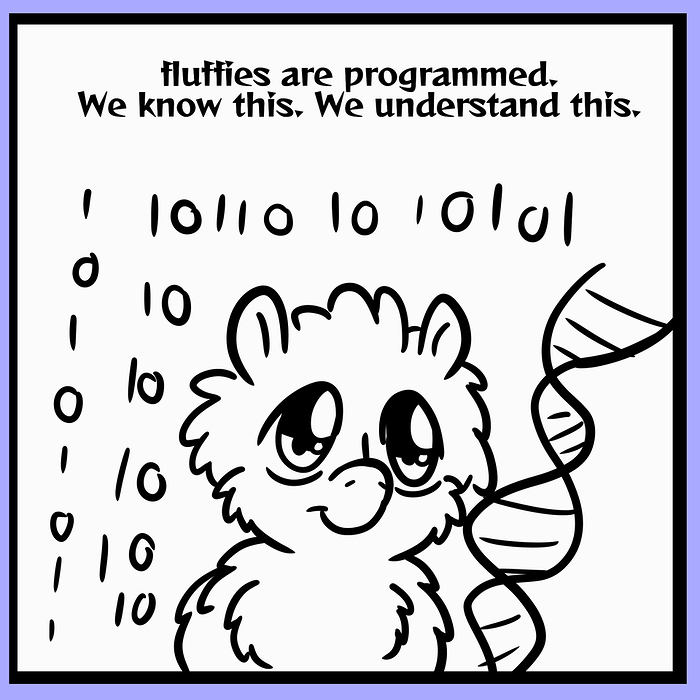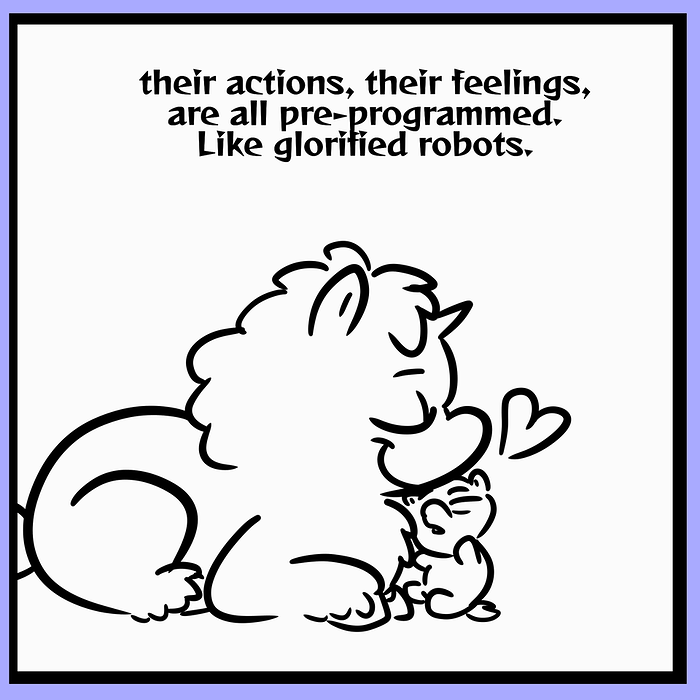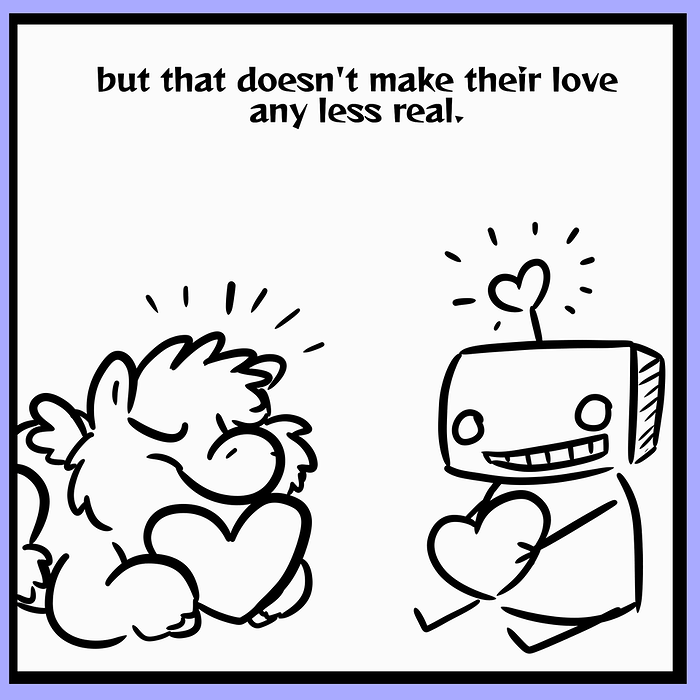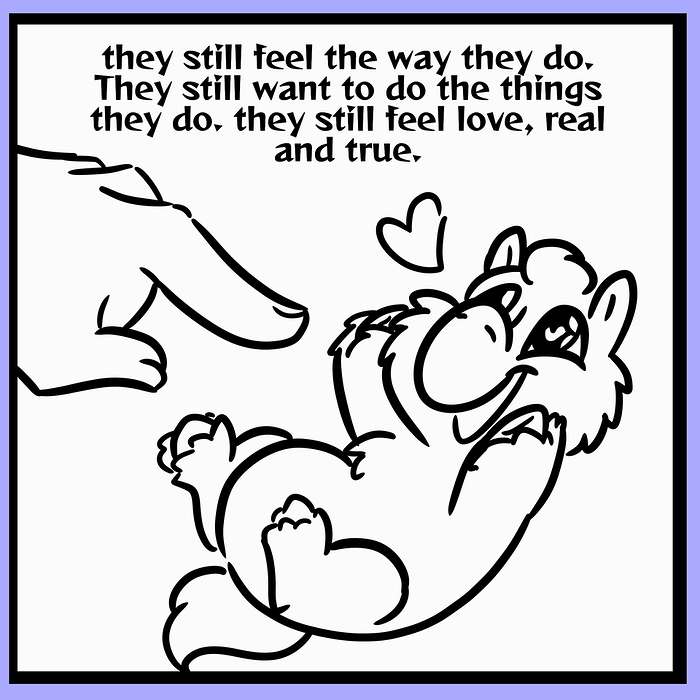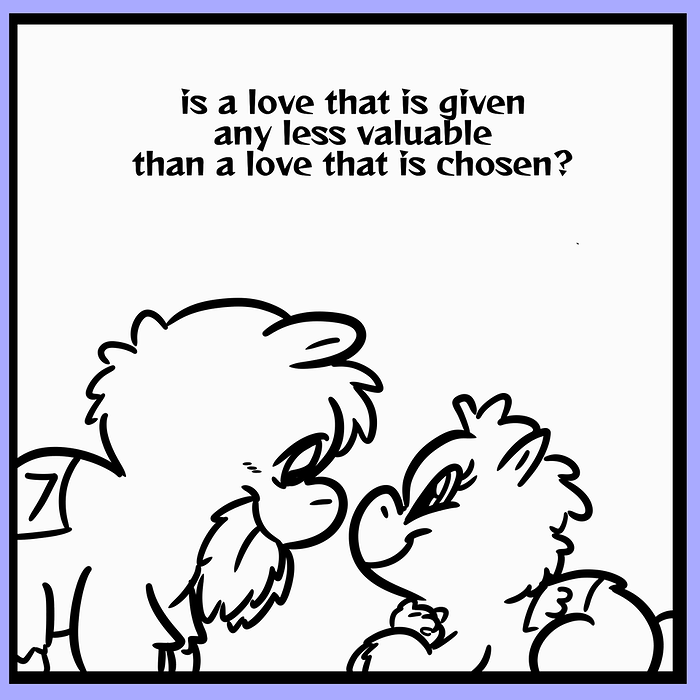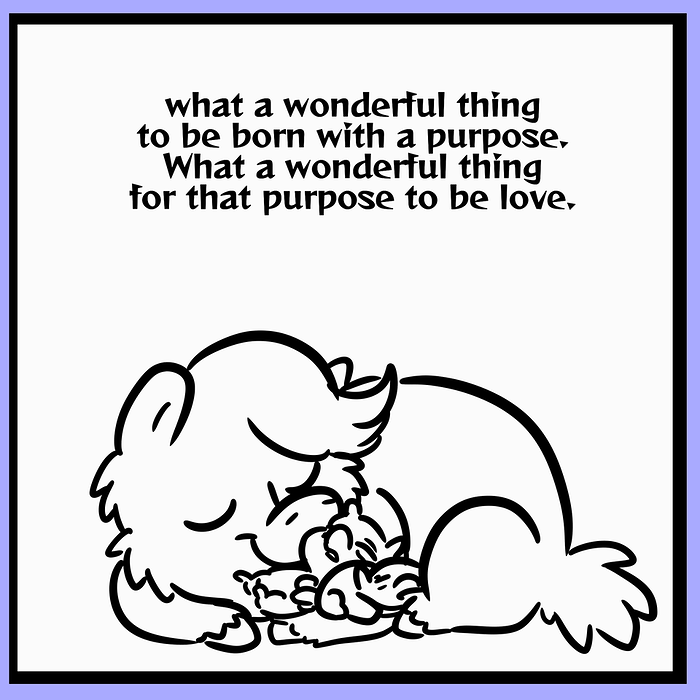That is one theory. I’m not going to knock it.
But choice matters. To me, at any rate. Either I can choose, or there’s no point.
Is a love that is given any less valuable than a love that is chosen?
Yes. If you literally cannot chose to not love someone, your love becomes meaningless. For love to have value, it must be valued on the effort of the one giving the love, not the reaction of the one receiving the love. The whole reason we put value on love is because it’s a conscious decision on our parts. It’s people who place humans at the whims of love that devalue it (“That’s when we knew we fell in love!” and “It was nobody’s fault, we just fell out of love” make humans the reactors to love rather than the actors in their own lives).
Love is an action. Love is a process. Love is a decision. Love is a choice. Removing the agency aspect of love reduces what you call “love” to merely a hormonal responses to another individual. No different than your stomach rumbling when you’re hungry, or your body swelling up when you get stung by a bee.
Artificially created creatures have no rights.
Well said.
Personally I’ve always been on the side of the programming giving them basic intelligence aswel. Like the ability to some degree understand the basics out of the box
I consider humans to be programmed with a basic level of intelligence, too.
Nearly all of us were born knowing how to smile, and to recognize a smile.
How to laugh, and also, outside laughter evokes something more primal inside our inner workings.
How to cry, and pout, and evoke our emotions,
all without ever having to learn these things.
There is a basic amount of communicative “programming” in fluffies,
and in humans.
Depends what you mean by love.
I define love as passion, no more real than the anger that causes a tantrum. Its a temporary chemical-based extreme. Just like happiness.
Fondness is real. Fondness grows, engenders altruism. Just like resentment, and contentment.
Fluffies are chemically induced to love. But they don’t automatically develop a relationship, that takes years to form.
Most Fluffy work depicts Foals and first-time parents. They can breed within like three months usually, which means most Fluffies in most stories are basically running purely on their programming rather than actual life experience. I’m gonna explore that in my mad science series, have some Fluffies who’s programming was deleted other than language grow alongside others who are still programmed.
In which case there is no difference between love given and love chosen. So that doesn’t answer Croc’s question, unless your answer is “all love is worthless because it’s a chemical reaction”.
Difference is fluffys know words whit abstract relation to actions and objects from birth which is way beyond basic “ programming “
All emotion is nothing but chemical reaction changing the name of a emotion dose not change that basis fact
for now. but the government would grant them those rights eventually
Well, wait a minute.
With minimal coaxing, humans know some pretty basic words too.
Ma-ma
da-da
wa-wa
I really think that the whole “programming” concept is a trope that allows us to get to the more important parts of the story, more quickly.
It means when a Fluffy immediately bonds to a human it means nothing. Its their programmed response, “Fwuffy wub hoomin” is default unless immediate fear overwhelms it.
When they’re a pet, and a bond develops over years that is characterized by personal experiences, that’s real.
A relationship is real. Otherwise its just a temporary state, and in the case of Fluffies it is a mandatory one.
You didn’t need to be a jerk like that.
As a cat owner who also lives with dogs: Hey! I’m familiar with the programming versus given argument. Although I am also familiar with “we domesticated dogs, cats domesticated us” argument too ![]()
Passion emotions are handled in a different place in the brain from from passive ones
Programming is why they know things like Sketties despite living and dying with no context for it, and why they go from chirping like birds to talking fluently within weeks.
But its a starter kit. Not the sum of their existence from start to finish.
Programming takes many forms. A genetic code is a blueprint, too. Regardless of it being nearly identical across a species, though, endless variations in what that code gives an individual are seen.
In my version, Hasbio had a lot of goals which ultimately were interrupted or proved too difficult to implement. So vague notions or instincts are most of what’s seen that seems preprogrammed.
